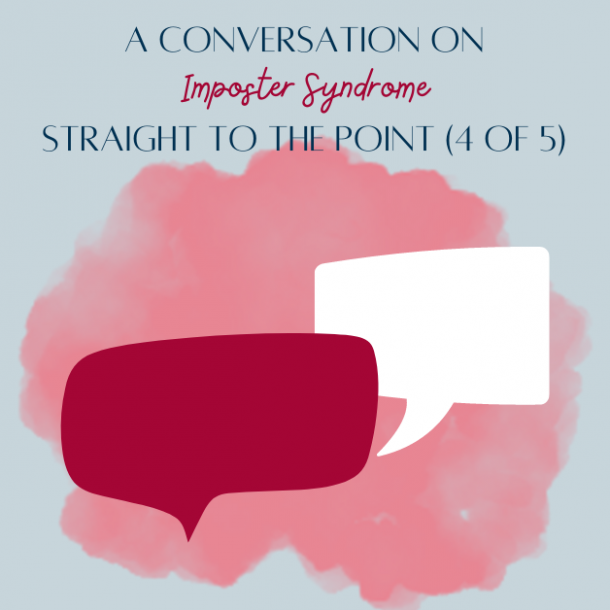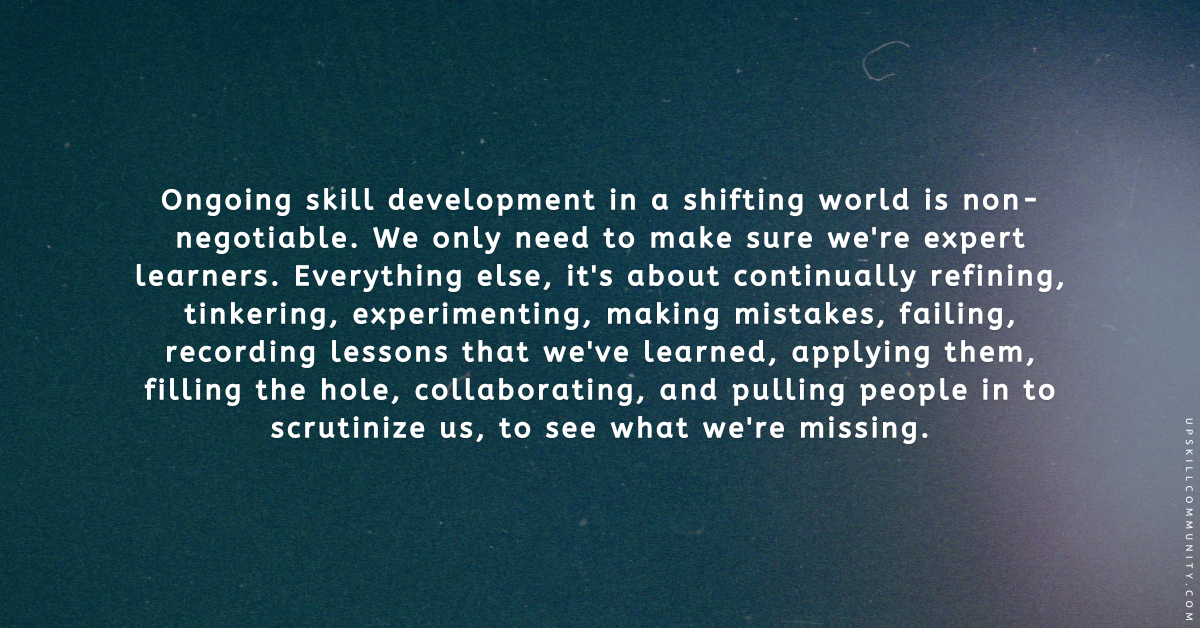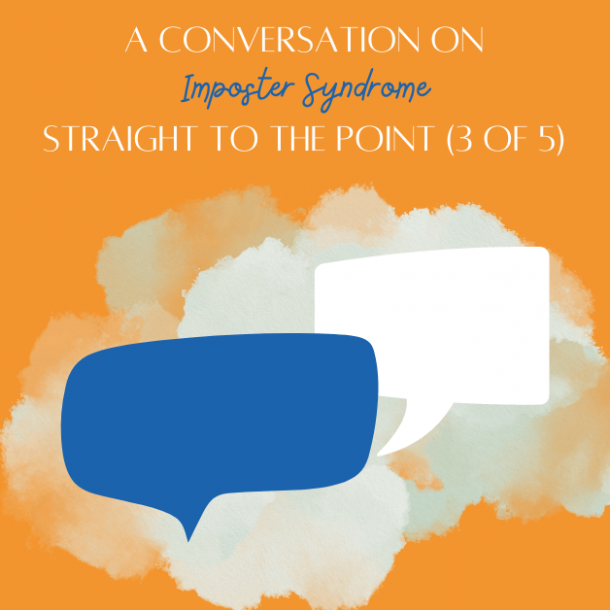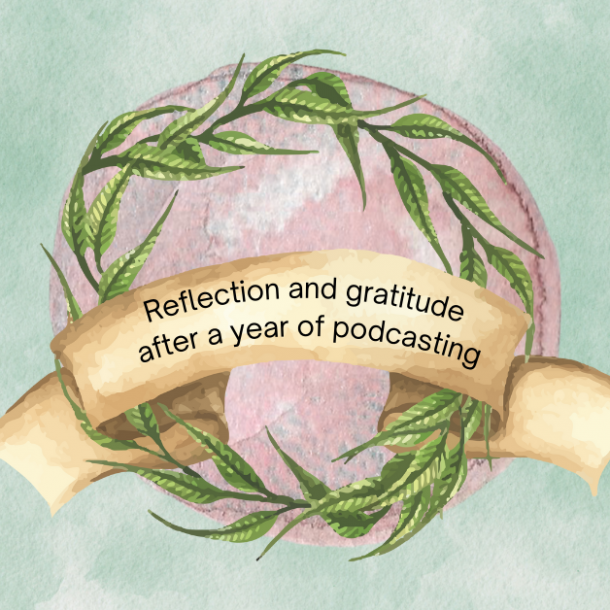
UpSkill: A conversation on imposter syndrome – Straight to the point (5 of 5)
In this blog post, we wrap up our conversation on imposter syndrome by taking a close look at the impact of imposter syndrome on branding and on your brand.
Seven out of 10 people have felt it at some point. That includes 25 to 35% of high achievers. If you are dealing with it, you’re not alone. And it’s something that we all go through at least at some point in our lives.
Understand that even if it doesn’t affect everything you do, there might be one area where it is. It could be with your family, with friends, with coworkers. And there’s always an opportunity to get it out of your life.
Since imposter syndrome can show up anywhere, getting rid of it will help your image.

If imposter syndrome is deeply entrenched in your identity, the idea of marketing yourself can seem intimidating. Marketing can come across as grandiose or not genuine. So how do you confidently market yourself to be able to create your brand in the first place?
However, when it comes to marketing yourself, understand that you are always marketing yourself — whether it is intentional or not. Every action and everything you say creates your image.
I know many leaders who refuse to participate even in a conversation on LinkedIn. And they’ll say “I have a LinkedIn profile because ‘I am sort of required to have one.’ I recognize now that I need to have one. However, I won’t like to post because I don’t really wanna be seen to be on there. I’m not comfortable. And I’m definitely not going to comment on anything and worst of all, do not expect me to post anything.”
And I think that may be the imposter syndrome showing up. There are some leaders who have genuine reasons not to participate, but for most the imposter syndrome is showing up. And that may be “What do I have to offer, who is going to listen to me?”
As a manager, Peter has noticed a shift in how new (and younger) employees present themselves. They are coming out of college and are prepared to take control and declare their value. They want to control their brand within the organization, and they are very intentional with it.
So there is now the clash of senior leaders who may not be as comfortable sharing via platforms such as social media, versus a younger workforce who embraces it.
On terms of social media — when it comes to branding and marketing — it’s home for younger people like millennials. Not all millennials. However, studies suggest that as a whole, millennials are very comfortable putting themselves.
Sometimes to their detriment in the sense that they will let you know what was for breakfast, lunch, and dinner. Those kinds of posts can can be noise in the space. But social media is a site for branding.
I have seen how social media can help people brand themselves as experts. Let’s take the case of two people.
One just listened to some videos, did a two-year program and writes up a course and is ready to sell it. And is doing such a great job at branding that everybody’s buying their course.
And then there’s a 20-year veteran who’s been doing all of this work and is not as comfortable to put themselves out there.
How do we deal with the imposter syndrome in the brand, in the social media space, to balance off what’s out there so that everyone that’s there can find something at the level that they need it?
So one thing I wanna flag up is that we all have a brand, whether we are intentional in cultivating it or not, we have a brand. And if we have imposter syndrome, imposter syndrome is impacting that brand.
Jeff Bezos says, your brand “…is what people say about you when you’re not in the room.” So whether you’re working for someone, working for yourself or just hanging out, people will say something when you’re not in the room. That’s your brand. And so whether we are working within these clearly defined structures or doing more creative work, we have to be mindful of how we’re showing up. We have to be aware of how all of these are impacting what people say about us when we’re not in the room. That’s our brand.
I want to leave you with a few questions to ponder. Do you know what people say about you when you’re not in the room? And how intentional are you about influencing what people say when you’re not in the room? What can you do to influence what people say when you’re not in the room?




